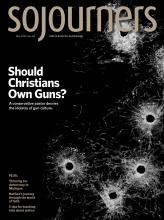HEBERT ROBINSON Marbury’s Pillars of Cloud and Fire: The Politics of Exodus in African American Biblical Interpretation achieves the distinction of providing fresh insight in well-covered territory. Marbury, with imagination and impressive intellectual range, explores the uses of Exodus by African Americans in struggles for freedom, respect, and full inclusion into the democratic mechanisms of American political life.
For the past four decades, scholars in fields as disparate as African-American religious history, preaching, rhetoric, constructive theology, and American studies have noted a fundamental duality: White Christian immigrants perceived Britain as Pharaoh and America as the Promised Land; enslaved Africans, by contrast, saw America as a strange land in which white Christian immigrants were Pharaoh. Instead of covering this important though beaten path, Marbury employs an alternative strategy.
What’s his take? Marbury’s book acknowledges this rich history, specifically the first two generations of African-American biblical scholarship. Then he pivots quickly to define cultural studies as a foundational discipline anchoring his reading of the text. What this means is that Marbury unpacks the significance of scripture by assessing the canonical account as well as the life-world and aims of individual interpreters who employ what Hebrew Bible scholar Renita Weems calls reading strategies for the text. The arc of Marbury’s analysis stretches from the antebellum era to the black power movement.
Read the Full Article

